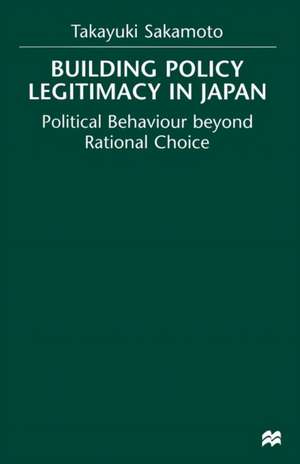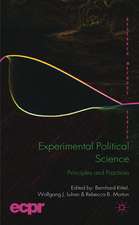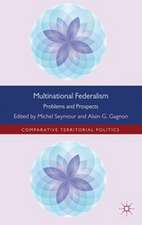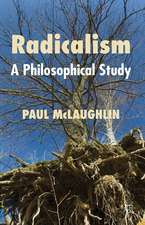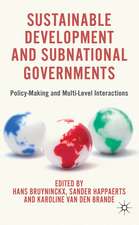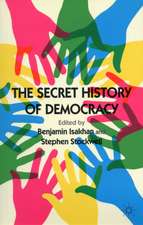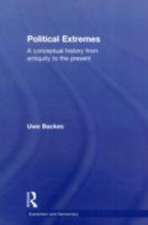Building Policy Legitimacy in Japan: Political Behaviour beyond Rational Choice
Autor T. Sakamotoen Limba Engleză Paperback – 13 iul 1999
Preț: 324.47 lei
Nou
Puncte Express: 487
Preț estimativ în valută:
62.09€ • 64.70$ • 51.41£
62.09€ • 64.70$ • 51.41£
Carte tipărită la comandă
Livrare economică 31 martie-05 aprilie
Preluare comenzi: 021 569.72.76
Specificații
ISBN-13: 9781349415618
ISBN-10: 1349415618
Pagini: 223
Ilustrații: X, 213 p.
Dimensiuni: 140 x 216 x 12 mm
Greutate: 0.26 kg
Ediția:1st ed. 1999
Editura: Palgrave Macmillan UK
Colecția Palgrave Macmillan
Locul publicării:London, United Kingdom
ISBN-10: 1349415618
Pagini: 223
Ilustrații: X, 213 p.
Dimensiuni: 140 x 216 x 12 mm
Greutate: 0.26 kg
Ediția:1st ed. 1999
Editura: Palgrave Macmillan UK
Colecția Palgrave Macmillan
Locul publicării:London, United Kingdom
Cuprins
Acknowledgements Introduction: Policy Legitimacy, Unpopular Legislation and the Limits of Self-interest PART I: THE THEORETICAL FRAMEWORK Policy Legitimacy as a Determinant of Policy Outputs PART II: APPLICATIONS The Politics of Consumption Tax in Japan The Politics of Consumption Tax in Japan (2) Electoral Reform Conclusion Bibliography Index
Recenzii
'The argument is clearly and directly presented...the book is rich in interesting details...' - Journal of Asian Studies
Notă biografică
TAKAYUKI SAKAMOTO is Assistant Professor of Political Science, Faculty of Law, Nanzan University (Japan). He was also the recipient of Fulbright-Hays Dissertion Fellowship, University of California Institute on Global Conflict. His current research focuses on comparative political economic policy-making.
